This website contains useful information to help Indian Working Women:
- Labour Laws
- Maternity Benefit Act
- POSH Act
- Discussion Forum
- Our Support

This website contains useful information to help Indian Working Women:
This section contains information about Working women's labour laws

In today's dynamic economic landscape, the contribution of women in India's workforce is more significant than ever. As more women step into industries like retail, hospitality, IT, and services, the need for robust legal protections is paramount. One such cornerstone of labour regulation is the Shops and Establishments Act, a state-specific law that governs working conditions in commercial establishments.
Though each state has its own version of this Act, several common provisions exist across the board to safeguard the rights and well-being of female employees. Here's a detailed overview of the key protections:
In a progressive step, states such as Maharashtra, Karnataka, Tamil Nadu, Haryana, and Delhi have amended their laws to allow women to work night shifts (typically between 7 PM and 6 AM). However, this permission comes with stringent safeguards:
This move is especially vital in industries like BPOs, IT, and healthcare that operate 24/7.
Even when not on official night shifts, many women work late into the evening—particularly in winters when it gets dark earlier. Recognizing the potential risks, several states have enhanced safety mandates:
These measures ensure standard shift timings don't compromise women's safety.
To promote employee wellness, the Act enforces fair scheduling norms:
Such provisions aim to prevent overwork and foster work-life balance.
Employers are obligated to maintain a clean and safe workplace, especially for female staff:
Post-COVID, workplace inspections and compliance checks by labor departments have become more frequent and stringent.
While maternity benefits fall under the Maternity Benefit Act, 1961, shops and establishments covered by the state Acts must comply with its guidelines:
Non-compliance can attract heavy fines and legal proceedings.
Though not always detailed in the Shops and Establishments Act, female employees are safeguarded by:
Together, these laws support fair hiring, promotions, salary parity, and respectful workplace behaviour.
Women are entitled to a range of paid leaves under the Act, as per state-specific norms:
Employers must maintain and transparently display leave policies for easy employees access.
As India moves towards a more inclusive and equitable workforce, the evolving provisions under the Shops and Establishments Act play a critical role in protecting female workers. Whether a woman is working night shifts or leaving late in the evening, her safety, dignity, and rights at the workplace must never be compromised.
Both employees and employers must stay informed—compliance isn't just a legal necessity; it's a collective commitment to building empowering and respectful workspaces for women.

The gig economy has become a major source of livelihood for women. Whether offering services through digital platforms, freelancing, or doing app-based delivery and caregiving work, more women are choosing flexible ways to earn.
But what legal protections do these women actually have? Let's break down the rights and protections available to women gig workers under Indian labour and workplace laws.
India officially recognises gig and platform workers under the Code on Social Security, 2020. This law includes gig workers, platform workers, and unorganised sector workers as distinct categories eligible for social security benefits.
The Prevention of Sexual Harassment at Workplace Act (POSH), 2013, provides comprehensive protection against sexual harassment for women across all kinds of workplaces.
Even if a gig worker is not directly employed by an organisation, she can approach the LCC set up by the district officer under the POSH Act to seek justice.
1. Register with Women's Official Platforms
2. Report Sexual Harassment
3. Stay Informed
Indian law acknowledges and protects the rights of women in the gig economy through
These laws ensure that women, regardless of employment type, have the right to safety, dignity, and social protection at work.
By staying informed and taking proactive steps, women in the gig economy can claim their legal rights and work with confidence.

India's informal sector is a critical part of the economy, employing over 90% of the total workforce. Within this segment, women form a significant proportion—working as domestic helpers, construction workers, street vendors, agricultural labourers, and home-based workers. Yet, despite their immense contribution, they are largely excluded from formal social security protections, leaving them vulnerable to exploitation, harassment, and insecurity.
Here we will explore the social security schemes available for women workers in the informal sector, their linkage to labour laws, the POSH Act, and the Maternity Benefit Act, while also highlighting the challenges and policy gaps.
The informal sector comprises workers who are not covered under formal employment contracts and often lack access to legal protections like minimum wages, paid leave, or health benefits. For women, this lack of formal protection becomes even more critical due to
Below are the schemes for women in the Informal Sector:
A centrally sponsored scheme providing maternity benefits of ₹5,000 in three installments to pregnant and lactating women for their first live birth.
For women working in construction:
While this Act primarily applies to establishments with 10 or more employees, some states have extended certain maternity protections to unorganised sector workers.
However, its implementation in the informal sector is patchy. For most women in informal employment, schemes like PMMVY serve as an alternative.
The POSH Act mandates a safe and secure working environment for women. While most unorganised workplaces lack formal internal complaint committees (ICCs), the law requires
Challenges:
Aims to unify and simplify existing social security laws. It brings the unorganised sector, gig, and platform workers under its purview.
Empowering women in the informal sector with robust social security is not just a welfare measure—it's a constitutional and human rights obligation. Ensuring safe workplaces under POSH, maternity protection under the Maternity Benefit Act, and inclusive coverage under labour laws and welfare schemes will go a long way in enabling dignity, safety, and economic independence for millions of women.

From selling vegetables in the market to running a small tailoring business from home, millions of Indian women are building their livelihoods on their own terms. But being self-employed or a street vendor often comes with daily challenges- harassment, eviction threats, unfair fines, and more.
The good news? The law has your back. Whether you're running a roadside stall, a food cart, or working from home, here's what you need to know about your legal rights and protections.
You are covered under the law if you are:
If you earn money by providing goods or services directly to customers, and you do it independently- you're self-employed, and law protects you.
Yes, there's a full law just for street vendors! It's called the Street Vendors (Protection of Livelihood and Regulation of Street Vending) Act, 2014, and it says:
Tip: Visit your local municipal office and register yourself to get a Vendor Certificate or ID Card. This gives you legal recognition and protection.
Whether it's local officials, police, or passerby- nobody has the right to threaten, abuse, or remove you without legal cause.
Here's what you can do:
Women in public spaces- especially self-employed women and vendors- may face inappropriate comments, touching, or worse. This is not just wrong, it's illegal.
You are protected under the Sexual Harassment of Women at Workplace (Prevention, Prohibition and Redressal) Act, 2013, also known as the Posh Act.
Even if you're not in a traditional office, courts have recognized that "the street is your workplace" if you earn a living there.
Here's how you're protected:
Visit your District Collector's office or call 181 to find out where your LCC is located. NGOs working on women's rights can also help you file a complaint.
As a self-employed woman, you're eligible for:

Pregnancy is one of the most exciting journeys in a woman's life-but navigating maternity leave policies at work? Not always so exciting. If you're a working woman planning to start or grow your family, understanding your company's maternity policy is essential.
Maternity leave is more than just time off-it's about protecting your health, your baby, and your career. The more informed you are, the more empowered you'll feel during this major life event.

Motherhood is a life-changing experience — full of joy, change, and, let's be honest, a fair bit of stress too. For working women in India, understanding maternity benefits isn't just helpful — it's essential. Whether you're planning a pregnancy or already expecting, knowing your rights can make the journey a lot smoother.
This guide breaks down maternity benefits in India in simple terms so you know exactly what you're entitled to and how to make the most of it.
All maternity-related rights for working women are governed under the Maternity Benefit Act, 1961, which was significantly amended in 2017 to offer stronger protections and more generous leave.
This law applies to:
For the First Two Children:
For the Third Child and Beyond:
For Adoptive or Commissioning Mothers:
To qualify:
1. Work-from-Home Option
2. Crèche Facilities
3. Medical Bonus
It's illegal for your employer to:
If any of these happen, you can file a complaint with the labour commissioner or raise it on the Shram Suvidha Portal.
Yes! After using your official maternity leave:
Pregnancy and early motherhood are beautiful, but they also come with practical challenges - especially if you're balancing them with work. The good news is, Indian law is on your side. Knowing your maternity rights gives you the power to make informed choices, protect your job, and focus on what really matters - you and your baby.
Don't hesitate to speak to your HR team or reach out for legal support if you ever feel unsure. You deserve care, respect, and time - and the law ensures you get just that.

The Central Civil Services (Leave) Rules, 1972, offer special provisions to support women employees in balancing their professional and personal lives, especially regarding maternity, childcare, and family-related responsibilities. These rules ensure that women employees are granted adequate leave to manage health, childcare, and family obligations without compromising their careers.
Both the CCS Leave Rules and the Maternity Benefit Act deal with leave entitlements for employees in India, but they apply to different sectors and have some key differences.
| Aspect | CCS (Central Civil Services) Leave Rules | Maternity Benefit Act, 1961 |
|---|---|---|
| Applicability | Applies to Central Government employees. | Applies to women in the private sector and excludes government servants covered by other rules like CCS. |
| Maternity Leave Duration | 180 days (6 months) for the first two surviving children. 45 days for miscarriage/abortion. | 26 weeks (6.5 months) for the first two surviving children. 12 weeks for more than two children. 6 weeks for miscarriage/abortion. |
| Paternity Leave | 15 days for male Central Government employees. | No provision for paternity leave. |
| Adoption Leave | 180 days for female employees for adopting a child below 1 year. 15 days for male employees. | 12 weeks for adoptive mothers of children below 3 months of age. |
| Surrogacy Leave | Similar to adoption leave (female employees get 180 days for commissioning motherhood). | 12 weeks for commissioning mothers. |
| Salary/Pay during leave | Fully paid leave. | Fully paid leave (average daily wage of the last 3 months). |
| Additional Benefits | Covers other types of leave (earned leave, casual leave, half-pay leave, etc.). | Includes benefits like medical bonus, nursing breaks, etc. |
| Governing body | Department of Personnel and Training (DoPT). | Ministry of Labour and Employment. |
| Legal Framework | Central Civil Services (Leave) Rules, 1972. | Maternity Benefit Act, 1961 (amended in 2017). |
Below are the key leave entitlements specifically designed for women Central Government employees:
Important Notes:

Motherhood is not defined by pregnancy alone. In today's evolving world, many women are embracing surrogacy and adoption to build families, and Indian law is beginning to recognise the need for equal maternity benefits in these journeys.
Whether you're an adoptive or commissioning mother, it's crucial to understand your legal entitlements under Indian law. Here's what you need to know:
The Maternity Benefit Act, 1961, governs paid maternity leave for women in India. It was amended in 2017 to include two important categories:
This landmark amendment extended maternity leave rights beyond just biological pregnancy.
As per the Act:
Leave Entitlement: 12 weeks of paid maternity leave
Starts from: The date the child is handed over to the commissioning mother
An adoptive mother is a woman who legally adopts a child.
Leave Entitlement: 12 weeks of paid maternity leave
Starts from: The date the child is handed over to her
Condition: The adopted child must be less than 3 months old.
This means if the child is older than 3 months, the adoptive mother is not eligible for paid maternity leave under the Act-a gap many legal experts and parents are urging lawmakers to address.
To claim maternity benefits under the Act:
Employers may request certain documents to process your maternity leave, including:
Each workplace may have specific requirements-always confirm with your HR department.
If your company doesn't fall under the Maternity Benefit Act (like certain small private setups or unorganized sectors), you can still:
Also, some progressive companies voluntarily extend maternity benefits to adoptive and commissioning mothers even when not legally required.
No termination during maternity leave: Employers cannot dismiss or discriminate against a woman for taking leave under the Act.
Right to return to work: You are entitled to resume your position or an equivalent role after your maternity leave.
While the 2017 amendment was a positive step, there are still some gaps:
Adoption and surrogacy are meaningful, loving paths to parenthood-and women who choose them should receive equal respect and support at the workplace.
If you're planning to adopt or become a mother via surrogacy, know your rights, gather your documents, and speak with HR early. Your journey to motherhood may be different, but your need for time, bonding, and care is the same.
Contains content which does not fall in POSH, ML & labour laws

Facing abuse, harassment, or exploitation is a traumatic experience. With the introduction of the Bharatiya Nyaya Sanhita (BNS), 2023, the legal system continues to offer a framework to support and protect victims especially women-by ensuring justice, security, and dignity.
However, justice will take years, as the legal process is very slow and imperfect. While laws exist on paper, challenges like delays, weak enforcement, and social stigma can make the journey even harder; settlement with the company as soon as possible is the best option for a woman.
Enacted post the Nirbhaya case (2012), this ordinance introduced new offences like stalking and voyeurism and provided stricter punishment for sexual assault. These are now embedded into the new Bharatiya Nyaya Sanhita.
This section criminalises:
Unwanted physical contact with sexual intent
Asking for sexual favours
Making sexually inappropriate remarks
Showing pornography without consent
Punishment: Up to 3 years imprisonment and/or a fine.
Covers cases where someone tries to forcefully remove a woman's clothing or helps in doing so.
Punishment: 3 to 7 years in prison.
Watching or capturing images of a woman involved in private acts (e.g., changing clothes) without her consent.
Punishment:
First offense: 1 to 3 years in prison + fine
Repeat offense: 3 to 7 years + fine
Includes:
Repeatedly following a woman
Contacting her despite disinterest
Tracking her digital activities
Punishment:
First offense: Up to 3 years
Subsequent offense: Up to 5 years
These provisions punish those who kidnap, traffic, or force individuals into labour, sex trade, or illegal activities.
Punishment: Minimum 7 years to life imprisonment.
Defines rape as sexual intercourse without consent. Saying "no" is sufficient to constitute lack of consent; physical resistance is not mandatory.
Punishment: Minimum 10 years, extendable to life imprisonment.
Applies when rape results in death or leaves the victim in a coma-like state.
Punishment: Minimum 20 years to life, possibly the death penalty.
Punishes those in positions of power-like teachers, guardians, or public servants-who use their position for sexual exploitation.
Punishment: Up to 10 years.
Punishes anyone who uses inappropriate gestures, words, or actions to insult or offend a woman's modesty.
The Bharatiya Nyaya Sanhita, 2023, is a modern, victim-centric approach to justice. These laws are not just legal codes-they are shields of dignity. If you or someone you know is affected, remember: knowing your rights is the first step toward justice.

Pregnancy is a time full of wonder, dreams, and planning for the future. Among the many questions parents ask themselves during this beautiful journey, one that often arises is, “Is it a boy or a girl?”
In countries like India, prenatal sex determination using ultrasound or other methods is strictly prohibited by law. The Pre-Conception and Pre-Natal Diagnostic Techniques (PCPNDT) Act makes it illegal to determine or disclose the sex of a fetus, with the aim of discouraging gender-based abortions.
However, for expectant parents who are genuinely curious and want to find out the baby’s gender purely out of excitement, there are legal alternatives abroad.
If you’re planning an international getaway during your pregnancy, you can combine your trip with a legally approved gender reveal check-up. Here are some popular countries where prenatal sex determination is completely legal and done professionally:
Each of these destinations offers world-class medical facilities and English-speaking doctors (in most cases).
| Destination | From Delhi (INR) | From Mumbai (INR) |
|---|---|---|
| Dubai | ₹18,000 - ₹25,000 | ₹16,000 - ₹24,000 |
| Singapore | ₹22,000 - ₹30,000 | ₹20,000 - ₹28,000 |
| Nepal (Kathmandu) | ₹7,000 - ₹12,000 | ₹8,000 - ₹13,000 |
| Japan (Tokyo) | ₹45,000 - ₹65,000 | ₹48,000 - ₹70,000 |
| USA (New York) | ₹70,000 - ₹1,10,000 | ₹72,000 - ₹1,15,000 |
| Brazil (São Paulo) | ₹1,20,000 - ₹1,60,000 | ₹1,25,000 - ₹1,70,000 |
| Thailand (Bangkok) | ₹16,000 - ₹22,000 | ₹15,000 - ₹20,000 |
Note: Prices fluctuate based on season, airline, and how early you book. These are general averages based on April 2025.
Ultrasound is the most commonly used method. It uses high-frequency sound waves to create real-time images of the fetus. Doctors often identify the baby’s sex by visually examining the genitalia.
CVS is a genetic test performed in the first trimester (typically between 10-13 weeks). It involves collecting a small tissue sample from the placenta for chromosomal analysis.
NIPT is a simple blood test that analyses fragments of fetal DNA found in the mother’s bloodstream. It can be done as early as the 10th week of pregnancy.
If you’re eager to know your baby’s gender during pregnancy, there are safe and legal ways to do it abroad. Many countries offer professional and accurate prenatal sex determination through ultrasound or blood tests. Just make sure to plan ahead, carry the right documents, and choose a trusted hospital. It can be a smooth and memorable part of your pregnancy journey.
Disclaimer: The information here is for educational purposes only and does not promote or encourage sex determination or selection in any form. It is important to follow the laws and medical ethics of your country.

In India, while laws like the POSH Act (Prevention of Sexual Harassment at Workplace, 2013) have been enacted to protect women, the harsh reality is that implementation and enforcement remain weak. Many women still struggle with workplace harassment-verbal, mental, or even sexual-with little support from authorities due to inaccessibility, systemic delays, or sheer apathy.
Court cases often drag on for years, making justice a long and uncertain road. In such an environment, a simple tool like a voice recorder can become a silent but powerful ally.
While Indian courts may not always accept voice recordings as primary evidence unless obtained through authorised channels like police investigations, such recordings can still play a vital role:
Although mobile phones have built-in recorders, they're not ideal for professional voice recording:
Key features:
I purchased it for around ₹4250 from eBay India. It may be available for less on platforms like Flipkart or Amazon, so compare prices before buying.
While a voice recorder is no substitute for legal reforms or institutional accountability, it empowers women with a tool to document harassment, assert their voice, and seek action at the workplace. Whether for self-protection or preserving sweet moments with loved ones, a dedicated voice recorder like the Sony ICD-PX312 is a worthwhile investment.
Certainly! Here are some reliable digital voice recorders available on Amazon, suitable for discreet and high-quality audio recording in office environments:
When a baby is born, you'd expect the first things parents worry about to be choosing a name, arranging baby clothes, or maybe setting up a crib. But in some parts of India, there's another fear quietly hanging over the moment: a knock on the door.
That knock, often coming just days after birth, is from the local hijra community. It's a tradition many of us grew up seeing - hijras visiting homes with music, claps, blessings, and yes, money requests. While it may have started as a cultural exchange of blessings, for many modern parents, it's now something else entirely; the pressure can feel overwhelming, and many families report being asked for thousands of rupees - with loud, embarrassing scenes if they refuse.
To avoid these unwanted visits, more and more parents are using a tactic that might seem surprising:
They give a false home address during hospital registration.
This small change makes it harder for anyone - including hijra groups - to track them down after the birth. While it's not a 'perfect solution,' it helps the parents to avoid the stress of dealing with unexpected visitors during such a delicate time.
I first heard about this from a friend in Delhi. She told me, "When a child was born in her family, they were warned in the hospital. If you don't want a scene at your door, just don't put your real home address on the birth certificate."
More and more parents - especially in cities and semi-urban areas - are giving false addresses in hospitals at the time of delivery. Why? To avoid visits from hijra groups who demand money, sometimes aggressively.
Some families report being asked for thousands of rupees and say that refusing to pay led to loud scenes outside their homes, public embarrassment, and even threats. So instead of dealing with the drama, they take a detour: lie at the hospital and avoid being tracked later.
Let's be real - not every hijra visit is a problem. In fact, some people still welcome them, offer money willingly, and see it as part of Indian cultural richness. But the problem arises when these visits turn into extortion rather than a blessing.
It paints the entire hijra community in a negative light, even though many members live with dignity and face massive social discrimination themselves. It's a broken system. On one side, families feel trapped. On the other side, hijras are stuck in traditions that don't always offer sustainable livelihoods.
If you're considering this step, here are some smart, low-risk ways to do it:
If you give a false address, make sure to plan ahead:
Even if you successfully avoid a visit right after your baby's birth, it's possible that someone from the hijra community may still track you down months or even years later.
Here's a simple and respectful response many parents are now using:
"We've already given the money and taken the blessings where the child was born."
By saying this, you're implying that any blessings or traditions were already taken care of at the place of birth, not your current home. It's polite, firm, and helps avoid unnecessary confrontation.
Every parent has the right to peace, safety, and privacy - especially in those early days of bringing a new born home. While giving a false address isn't ideal or legally encouraged, it's one way some families are reclaiming control in a situation that can feel out of their hands.
The hijra tradition deserves respectful dialogue and support. But so do new parents who are just trying to protect their family.
This chapter will contain all information related to POSH
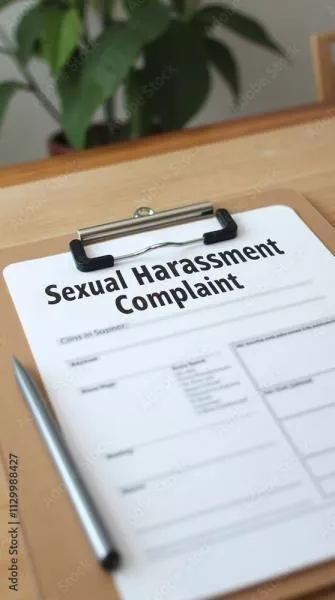
[Date]
To
The Internal Complaints Committee (ICC)
[Company Name]
[Company Address]
Subject: Complaint of Sexual Harassment
Dear [Name or ICC Members],
I am writing to formally file a complaint regarding the
harassment I have been experiencing at the workplace.
The details of the incident(s) are as follows:
Date of Incident(s): [mention the date(s) of the incident]
Location: [mention the location where the incident occurred]
Nature of Harassment: [briefly describe the nature of the
harassment, e.g., inappropriate gestures, comments, etc.]
Perpetrator(s): [name(s) of the alleged harasser(s)]
Witnesses: [name(s) of anyone who may have witnessed the
incident]
I have not been comfortable addressing the situation directly
with the individual, and I believe
This matter requires formal intervention. I request that this complaint be
investigated and
Appropriate actions be taken according to the guidelines set out by the POSH Act.
I am also available for any further discussion or to provide
additional information, if required.
Thank you for your attention to this matter.
Sincerely,
[Your Full Name]
[Your Position]
[Your Contact Information]
Under the POSH Act, an employee who experiences sexual harassment must submit a formal written complaint to the Internal Complaints Committee (ICC). This is the first step in initiating the process, ensuring that the matter is investigated and appropriate actions are taken.
The written complaint must clearly state:
The complaint should be submitted within 3 months of the incident, or sooner if the harassment is ongoing.
While HR (Human Resources) is often the first point of contact for employees, the POSH Act mandates that every organisation with more than 10 employees must have an Internal Complaints Committee (ICC), which is responsible for handling complaints of sexual harassment.
Approaching the ICC Directly: If HR is unresponsive or dismisses your complaint, you can directly approach the Internal Complaints of sexual harassment and recommend actions accordingly.
Why the ICC? The ICC is trained to deal with such matters and has the authority to handle the complaint confidentially, impartially, and seriously.
HR's Role: HR can assist in guiding you through the complaint process, help with documentation, and facilitate communication with the ICC. However, HR must not interfere in the investigation once the complaint is filed with the ICC.
Once the written complaint is filed, the ICC is responsible for:
If HR or the ICC fails to address the complaint seriously or does not take prompt action, the employee can escalate the matter. Here are the steps to take:
If the issue persists, the employee can escalate the matter to senior management or the CEO of the company. Senior management has the responsibility to ensure that proper procedures are followed.
Approach External Authorities
If all internal and external channels fail, the complainant can take legal action, including filing a police report or pursuing the case in court.
After filing the complaint, the employee can expect the following:
If an employee is unable to write the complaint due to discomfort or other reasons, HR or the ICC should assist in documenting and submitting the complaint on their behalf. The employee can provide a verbal account, and the complaint will be written based on their description.
The POSH Act provides a framework for addressing sexual harassment and ensuring a safe workplace. Employees have the right to file a formal complaint with HR or ICC, and if HR is unresponsive, the employee can approach the ICC directly. If the matter is still unresolved, the employee can escalate it to senior management or external authorities.
It's important to document everything and know that there are legal channels available to address harassment. All employees, particularly women, have the right to a safe and respectful work environment, and the POSH Act provides the tools to ensure that those rights are upheld.

Sexual harassment at work is not just uncomfortable—it's illegal. Many women endure inappropriate comments, advances, or even physical contact because they fear speaking up, thinking no one will believe them without "proof." But gathering evidence is possible and crucial! It empowers you to file a complaint and helps ensure the harasser is held accountable.
To build a strong case, you need to document the harassment clearly. Here's how:
Proving harassment isn't easy, but it's vital. By keeping meticulous records and standing firm, you're protecting yourself and setting a precedent that harassment won't be tolerated.

Workplace sexual harassment remains a critical issue in India, despite the presence of legal frameworks like the Prevention of Sexual Harassment (POSH) Act, 2013. While the #MeToo movement brought significant attention to the problem, the actual implementation of anti-harassment laws and workplace policies remains inconsistent.
A Forbes India analysis reported a 101% rise is pending sexual harassment cases in India's largest companies in the year ending March 2023. This surge in unresolved complaints highlights the growing backlog of cases, raising concerns about delays in justice, ineffective redressal mechanism, and the reluctance of organisations to take strict action against offenders.
This article examines the ongoing challenges in addressing workplace sexual harassment, analysis the gaps in enforcement, cultural barriers, and potential solutions.
The POSH Act (Prevention of Sexual Harassment of Women at Workplace Act, 2013) was enacted to create a safe and harassment-free work environment for women in India.
Despite the legal provisions, workplace sexual harassment cases are rising rather than declining. According to a Forbes India analysis, the number of pending sexual harassment cases increased by 101% in India's largest companies in the financial year ending March 2023.
However, while complaints are rising, justice delivery remains slow, leading to an alarming backlog of unresolved cases.
These are the Major Challenges:
While India has a strong legal framework (POSH Act, 2023) to combat workplace sexual harassment, its implementation is still weak. The 101% rise in pending cases in India's largest companies highlights a severe failure in addressing complaints efficiently.
To bring real change, companies, legal authorities, and society must work together to:
Only then can workplaces become truly safe, inclusive, and respectful for everyone. The fight against sexual harassment in Indian workplaces is far from over, but timely action can lead to lasting change.

The Prevention of Sexual Harassment (POSH) Act is a crucial law in India that ensures workplace safety for women by preventing and addressing sexual harassment. In recent months, significant developments have been made to strengthen its implementation. Here's a detailed look at the latest updates and their impact.
In December 2024, the Supreme Court of India issued a directive requiring all government offices and public sector enterprises to establish Internal Complaints Committees (ICCs). These committees are responsible for handling complaints related to workplace harassment and ensuring timely resolutions.
On January 23, 2025, the Madras High Court ruled that sexual harassment is determined by how the victim feels rather than the accused's intent. This ruling strengthens the POSH Act's victim-centric approach.
On January 28, 2025, the Society for Human Resource Management (SHRM) released a study identifying seven key gaps in how companies are implementing the POSH Act.
The latest developments in POSH laws emphasise the importance of creating safer workplaces. With the Supreme Court's directive for stronger ICCs, the Madras High Court's victim-first approach, and SHRM's insights on compliance failures, organisations must take proactive measures to align with the law.
Employers and employees alike must work together to foster a workplace environment where harassment is not tolerated. Proper education, enforcement, and compliance will lead to a more inclusive and respectful professional space.
Know your rights. Speak up against harassment. Demand compliance. Together, we can create a safer workplace for all.

The Local Complaints Committee (LCC) is formed under the POSH Act, 2013, to handle workplace harassment complaints, especially when:
Every district is legally required to set up an LCC to ensure access to justice for women facing workplace sexual harassment.
South District's LCC in Saket is functional. Others have limited operations. The New Delhi District has an ICC within its office.
Contact the DM Office or check the Women and Child Development section of the district website for LCC details.
Falls under Gautam Buddh Nagar. Visit the DM Office or official district website for contact information.
Include the following:
Submit the complaint in person or via email/post (check with your district office for accepted formats).
Seek help from NGOs, legal aid services, or the NCW if you need support while filing the complaint.
LCCs are vital in addressing workplace harassment where internal mechanisms are missing or compromised. However, their presence and performance vary across districts. If your district lacks a functional LCC:
Being informed and proactive ensures that women can access justice without fear or delay.
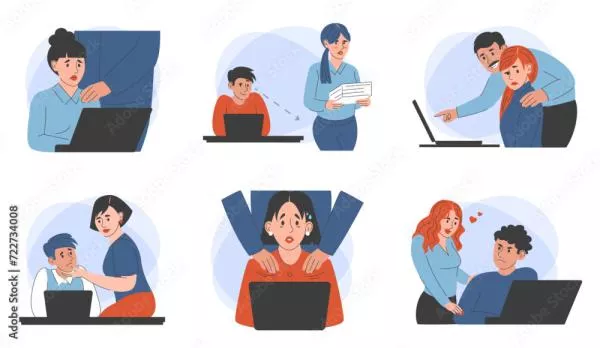
Sexual harassment in the workplace is a serious issue that affects many women across India. To protect female employees and create a safer work environment, the Indian government introduced the Prevention of Sexual Harassment (POSH) Act, 2013. This law ensures that women can work with dignity and provides a structured mechanism for handling sexual harassment complaints at the workplace.
In this article, we'll explore:
The POSH Act, 2013 (Prevention of Sexual Harassment at Workplace Act) is a legal framework designed to prevent, prohibit, and redress sexual harassment at workplaces in India.
The POSH Act defines sexual harassment as any unwelcome act, whether physical, verbal, or non-verbal, including
The POSH Act is designed specifically to protect women in workplaces. It applies to:
Even if a woman is not an official employee, she can still file a complaint under POSH if the harassment happens in a professional setting.
The POSH Act specifically protects women and does not cover certain categories of people. Those not included under this law are:
The POSH Act applies only to women.
If a man or a transgender person faces workplace sexual harassment, they cannot file a complaint under POSH.
However, they can file complaints under other workplace laws, such as the BNS/IPC, or seek justice under their company's internal grievance policies.
Male domestic workers, such as male cooks, drivers, and house staff, are not covered under POSH.
They must seek legal help under different labour laws or the BNS/IPC.
Organisations with less than 10 employees do not need to form an Internal Complaints Committee (ICC).
However, women from such workplaces can approach the Local Complaints Committee (LCC) formed by the district government.
The POSH Act applies only in a professional setting where an employer-employee relationship exists.
Example: If a customer harasses another customer in a café, it does not fall under POSH. Instead, the victim must file a police complaint under BNS/IPC.
If a student harasses a teacher (or vice versa), this is not covered under POSH.
Such cases must be reported under the University Grants Commission (UGC) regulations or BNS/IPC laws.
The POSH Act only covers workplace harassment.
If a woman is harassed outside her job (e.g., public transport, personal social media, parks, etc.), she must file a police complaint under BNS 73(outraging modesty of a woman).
If a woman experiences sexual harassment at work, she can file a complaint through the Internal Complaints Committee (ICC) within the organisation.
1. Report to the Internal Complaint Committee (ICC): The complaint must be submitted in writing within 3 months of the incident.
2. Investigation by ICC: The ICC will conduct an inquiry within 90 days by hearing both sides and examining evidence.
3. Decision and action: If harassment is proven, the employer can:
4. Appeal Option: If the woman is unhappy with the ICC's decision, she can appeal to a court within 90 days.
If a company doesn't have an ICC, the victim can file a complaint with the Local Complaints Committee (LCC) formed by the government.
All organisations with 10 or more employees MUST comply with POSH by:
✔Setting up an Internal Complaints Committee (ICC)
✔Displaying the POSH policy at workplace
✔Conducting regular awareness training for employees and managers
✔Maintaining confidentiality of complaint.
✔Taking action against offenders
Failure to comply with POSH can result in:
A fine of ₹50,000 for the company
License cancellation for repeated non-compliance
Women have the right to:
✅ A safe and respectful workplace
✅ File complaints confidentially
✅ Get interim relief (transfer, leave, protection from retaliation)
✅ A fair inquiry process
✅ Compensation for damages
If you experience sexual harassment at work:
✔Speak up and document everything: Keep screenshots, emails, or messages as evidence.
✔Report it to HR or ICC: If your company does not take action, approach the Local Complaints Committee (LCC).
✔Seek legal help: If needed, file a police complaint or approach a labour court.
The POSH Act, 2013 is a crucial law that protects women from sexual harassment at work. Knowing your rights and the complaint process is essential to ensuring workplace safety. Employers must also take strict action to create a harassment-free workplace.

Hospitals and healthcare facilities should be safe spaces for doctors, nurses, and medical staff. However, sexual harassment is a major issue in the healthcare industry.
Did you know?
A 2021 survey found that over 40% of female healthcare workers have faced workplace harassment.
Harassment can come from senior doctors, hospital staff, patients, or even visitors.
Many women do not report harassment due to fear of career damage or job loss.
The POSH Act, 2013 (Prevention of Sexual Harassment at Workplace Act) protects female healthcare workers by ensuring a safe, harassment-free workplace.
This article will help you understand:
The POSH Act defines sexual harassment as any unwelcome sexual behaviour that makes a woman feel unsafe or uncomfortable at work.
Harassment by Senior Doctors and Supervisors
Harassment by Patients or Visitors
Workplace Discrimination and Gender Bias
Example: A female nurse is touched inappropriately by a patient during a check-up. When she reports it, the hospital ignores her complaint—this is a violation of the POSH Act.
The POSH Act protects all women working in the healthcare industry, including:
Even if you are an intern or temporary staff, you are legally protected under POSH.
Step 1: Report the Incident to the Internal Complaints Committee (ICC)
Every hospital with 10 or more employees must have an ICC to handle sexual harassment complaints.
Submit a written complaint within 3 months of the incident.
The ICC must start an inquiry within 7 days.
If your hospital does not have an ICC, you can report to the Local Complaints Committee (LCC).
Step 2: Provide Evidence (If Available)
Step 3: ICC Investigation and Actions
The ICC must complete the inquiry within 90 days.
If harassment is proven, the hospital must take strict action against the offender.
Possible actions include:
Step 4: Appeal to a Labor Court (If needed)
If the ICC's decision is unfair, you can:
The POSH Act gives female doctors, nurses, and medical staff the following rights:
Example: A female intern is harassed by a senior doctor. She reports it to HR, but they threaten to fire her if she continues the case—this is illegal under POSH.
Under the POSH Act, every hospital and healthcare facility must take these steps:
Example: A private hospital fails to set up an ICC. If a female doctor files a POSH complaint and no action is taken, the hospital can be fined ₹50,000 for non-compliance.
If your hospital fails to take action, you can:
Example: A nurse reports harassment by a senior doctor. The ICC delays the case and takes no action. She can take the case to a labour court or LCC.
Can patients harass healthcare workers?
Yes! Patients, visitors, or attendants can be reported for harassment under POSH laws.
What if my hospital does not have an ICC?
You can file your complaint with the Local Complaints Committee (LCC).
Can I file a complaint anonymously?
No. However, your identity will be kept confidential throughout the investigation.
What if my employer retaliates after I report harassment?
Retaliation is illegal under POSH. You can take legal action in a labour court.
Can I file a POSH complaint after resigning?
Yes! Complaints must be filed within 3 months of leaving the job.
If this article helped you, share it with fellow healthcare workers to spread awareness!

Retail and hospitality industries require employees to interact with customers daily, making female workers more vulnerable to workplace sexual harassment.
Did you know?
Many female retail workers and hospitality staff face sexual harassment from customers, managers, or colleagues.
Sexual harassment can include inappropriate touching, offensive comments, or demanding favours.
The POSH Act, 2013 (Prevention of Sexual Harassment at Workplace Act) applies to all workplaces, ensuring a safe work environment.
If you work in retail or hospitality, POSH laws protect you!
This guide will help you understand:
The POSH Act defines sexual harassment as any unwelcome sexual behaviour that makes a woman feel unsafe or uncomfortable at work or lowers her dignity just because she is a woman.
Below are the common forms of Workplace Harassment in Retail and Hospitality Jobs:
Example: A hotel front desk employee receives inappropriate messages from a guest who got her number from the reservation system—this is workplace harassment.
The POSH Act applies to all female workers in customer-facing jobs, including:
Even if you are a part-time or temporary employee, you are legally protected under POSH.
Every store, hotel, restaurant, or service company with 10 or more employees must have an ICC for handling sexual harassment cases.
Submit a written complaint within 3 months of the incident.
The ICC must start an inquiry within 7 days.
If your company does not have an ICC, you can report to the Local Complaints Committee (LCC) in your district.
Example: A woman working in a shopping mall gets harassed by a customer, and security ignores her complaint—she should document the incident and report it to the ICC.
The ICC must complete the inquiry within 90 days.
If harassment is proven, the company must take strict action against the offender.
Example: A hotel staff member is harassed by a guest but is told to "ignore it." If the ICC does not take action, she can approach the Local Complaints Committee (LCC).
If the ICC's decision is unfair, you can:
Example: A female sales associate reports harassment by a manager. If the ICC does not take action, she can take the case to a labour court.
The POSH Act gives female employees in customer-facing jobs the following rights:
Example: A female hotel receptionist reports harassment by a guest. If HR asks her to "just be polite and accept it," she can file a legal case for inaction.
Under the POSH Act, every retail and hospitality company must take these steps:
Example: A retail store allows customers to behave inappropriately with female employees. If reported, the company can be fined ₹50,000 for non-compliance.
If your company fails to take action, you can:
Example: A female employee in a restaurant reports a senior chef for inappropriate behaviour. If HR ignores her complaint, she can file a case with the LCC or police.
Can customers be held responsible under POSH?
Yes! POSH laws apply to customers, guests, and vendors if they harass an employee.
What if my store or hotel does not have an ICC?
You can file your complaint with the Local Complaints Committee (LCC).
Can I file a complaint anonymously?
No. However, your identity will be kept confidential throughout the investigation.
What if my employer retaliates after I report harassment?
Retaliation is illegal under POSH. You can take legal action in a labour court.
If this article helped you, share it with fellow employees to spread awareness!

Women in police forces and law enforcement agencies play a crucial role in maintaining law and order. However, sexual harassment in police departments remains a serious issue.
Many female police officers face sexual harassment from male colleagues, senior officers, and even the public. Gender discrimination and workplace bullying are common challenges. Reporting sexual harassment can be difficult due to hierarchical power structures.
The POSH Act, 2013 (Prevention of Sexual Harassment at Workplace Act) protects women in police and law enforcement, ensuring a safe and respectful workplace.
This guide will help you understand:
The POSH Act defines sexual harassment as any unwelcome sexual behaviour that makes a woman feel unsafe at work.
Harassment by Senior Officers or Colleagues
Harassment from the Public or Criminals
Gender Discrimination and Workplace Bias
Example: A female constable faces verbal harassment from her male senior officer but is told to "adjust" instead of filing a complaint—this is a POSH violation.
The POSH Act protects all female officers and employees in law enforcement, including:
Even if you are in training or on a temporary contract, you are legally protected under POSH.
Every police station, district headquarters, and law enforcement agency must have an ICC for handling sexual harassment cases. Submit a written complaint within 3 months of the incident. The ICC must start an inquiry within 7 days.
If your department does not have an ICC, you can report to the Local Complaints Committee (LCC) in your district.
The ICC must complete the inquiry within 90 days. If harassment is proven, the department must take strict action against the offender. Possible actions include:
If the ICC's decision is unfair, you can:
Example: A female officer is groped by a senior inspector during a training session. She files a complaint, but the ICC dismisses it without proper investigation—she can take the case to a labour court.
The POSH Act gives female police officers and law enforcement employees the following rights:
Example: A female SI (sub-inspector) files a harassment complaint against a DSP (Deputy Superintendent of Police). If she faces job transfer as punishment, she can appeal for wrongful retaliation.
Under the POSH Act, every law enforcement agency must take these steps:
Ensure Safe Reporting: Female officers should be able to report harassment without fear.
Example: If a police department fails to set up an ICC, it can be fined ₹50,000 for non-compliance.
If your police department fails to take action, you can:
Example: A female ACP (Assistant Commissioner of Police) reports harassment by a superior. If the ICC delays the case and takes no action, she can take the case to a labour court or LCC.
Can the POSH Act be used against senior police officers?
Yes! The law applies to all employees, including top-ranking officers.
What if my department does not have an ICC?
You can file your complaint with the Local Complaints Committee (LCC).
Can I file a complaint anonymously?
No. However, your identity will be kept confidential throughout the investigation.
What if my employer retaliates after I report harassment?
Retaliation is illegal under POSH. You can take legal action in a labour court.
Can I file a POSH complaint after resigning?
Yes! Complaints must be filed within 3 months of leaving the job.
If this article helped you, share it with fellow officers to spread awareness!

With the rise of remote work, virtual meetings, and online collaboration, workplace interactions have shifted to emails, video calls, chat platforms, and social media. While this has made work more flexible, it has also introduced new challenges- including sexual harassment in digital spaces.
Many people assume that POSH (Prevention of Sexual Harassment at Workplace) laws apply only to physical offices, but that is not true. The POSH Act, 2013, applies to all workplaces, including virtual workplaces.
This article explains how the POSH Act protects employees from online harassment, the different forms of virtual harassment, and what employees should do if they face harassment while working remotely.
Yes! The POSH Act, 2013, does not limit workplace harassment to physical offices. The Act states that sexual harassment can occur "in connection with work," which includes remote work, online interactions, and virtual meetings.
In today's digital world, harassment doesn't require physical presence- if it makes a person uncomfortable, it is a violation of the law.
Sexual harassment in virtual workplaces can take many forms. The most common types include:
Example: A manager keeps sending personal messages to a female employee on WhatsApp, asking her to "send a picture" or "meet outside work."
Example: A male colleague keeps making inappropriate jokes about how a female coworker "looks great on video" and should "dress up more often for Zoom calls."
Example: A coworker constantly watches when a female employee is "online" on Microsoft Teams and messages her at odd hours, even when she is not working.
Example: During a work meeting, an employee "accidentally" shares an explicit image or video while screen-sharing, making others uncomfortable.
Example: A manager tells a junior female employee that he will "recommend her for a promotion" if she agrees to a private video call after work hours.
If you experience online sexual harassment, you have the right to report it under the POSH Act. Here's how:
Employers are legally responsible for providing a safe digital workspace. Companies should:
If you are working remotely, follow these steps to stay safe:
Sexual harassment doesn't just happen in offices- it can also occur in emails, video calls, and work chats. The POSH Act covers online workplace harassment, ensuring employees are protected even in virtual workspaces.
If you face harassment while working remotely, speak up and report it. Keep evidence, inform HR, and file a complaint under POSH. Employers must create a zero-tolerance policy for digital harassment.
A safe workplace- whether physical or virtual- is a basic right for every employee. By understanding and enforcing POSH laws, we can ensure a harassment-free and professional remote work environment.

Sexual harassment in the workplace is a serious violation of a woman's right to work with dignity. To protect working women, the Indian government introduced the Prevention of Sexual Harassment (POSH) Act, 2013.
Under this law, every woman has the right to report workplace sexual harassment without fear. However, many women are unsure about how to file a complaint or what to do if their employer does not take action. In this guide, we will explain:
The POSH Act defines sexual harassment as any unwelcome sexual behaviour that makes a woman feel uncomfortable or unsafe at work.
Examples of sexual harassment at work:
Example: If a female employee constantly receives inappropriate texts from her manager, this is sexual harassment, even if she does not respond.
The POSH Act protects all working women, including
Even if a woman is not a permanent employee, she still has the right to file a POSH complaint if the harassment happens at work.
Every company with 10 or more employees must have an Internal Complaints Committee (ICC) to handle sexual harassment complaints. The complaint must be in writing and submitted within 3 months of the incident. If the harassment is ongoing, the 3-month limit can be extended by the ICC.
How to Write a Complaint?
The ICC must begin an inquiry within 7 days of receiving the complaint. The accused (harasser) will be given a chance to respond. The ICC may interview witnesses or ask for more evidence.
Important:
Once the investigation is complete, the ICC can:
The final report must be submitted to the employer and the victim within 10 days after the investigation ends.
If the victim is unhappy with the ICC's decision, she can:
Example: If a company ignores a harassment complaint or lets the accused go unpunished, the victim can escalate the case to legal authorities.
If your company does not have an Internal Complaints Committee (ICC), you can:
Penalty for Companies That Don't Follow POSH: Fine of ₹50,000 for first-time violations. License cancellation for repeated violations.
Women have the right to:
The POSH Act is a powerful law that helps women take action against sexual harassment at work. If you or someone you know is facing workplace harassment, follow the complaint process and demand justice.
Key Takeaways:
📢 Every woman should know her rights under POSH. Share this guide to spread awareness!

In today's fast-paced, ever-evolving business environment, workplace harassment remains one of the most significant challenges organisations face. Despite advancements in corporate policies and societal awareness, harassment still occurs, affecting not only the individuals directly involved but also the broader organisational culture. This is why providing regular and comprehensive training on workplace harassment is more than just a checkmark on a compliance list—it's a proactive investment in the health, safety, and success of your workforce.
Workplace harassment refers to a wide array of inappropriate behaviours, which can be verbal, physical, or psychological in nature, creating a hostile, intimidating, or offensive work environment. These behaviours may stem from biases related to race, gender, religion, sexual orientation, age, disability, or other protected characteristics. However, harassment isn't always blatant. Subtle forms—such as microaggressions, offhand comments, or exclusionary behaviours—can be just as damaging and are often overlooked without proper education.
Many employees, especially those new to the workforce or unfamiliar with corporate protocols, may not fully understand what constitutes harassment. This lack of awareness can result in people unknowingly engaging in or tolerating harmful behaviours, allowing toxicity to seep into the workplace. By offering targeted training, organisations can ensure that every individual understands the nuances of workplace harassment, recognises inappropriate conduct, and knows how to respond effectively.
In many jurisdictions, businesses are legally required to provide harassment training to employees. These laws are designed to protect workers from abusive or discriminatory behaviour and hold employers accountable for the work environment they foster. Failing to comply with these mandates can lead to severe consequences, including fines, lawsuits, and reputational damage. More importantly, legal compliance isn't just about avoiding penalties—it's about demonstrating a company's commitment to fair and equitable treatment for all.
One of the most crucial aspects of harassment training is education. Through training programs, employees learn what harassment looks like in various forms, understand its consequences, and recognise their role in preventing it. Training empowers employees to speak up, whether they are the target of harassment or a witness to it. This creates a sense of shared responsibility, fostering a culture where inappropriate behaviours are identified and addressed before they escalate.
Furthermore, when employees are equipped with the right tools and knowledge, they feel more confident navigating complex interpersonal situations. This empowerment extends beyond harassment issues, promoting open communication and mutual respect across the board.
Regular training sends a powerful message that harassment of any kind will not be tolerated and that the organisation is committed to maintaining a respectful, inclusive environment. This consistent reinforcement shapes the workplace culture, establishing clear behavioural expectations for everyone.
A respectful workplace isn't just beneficial for preventing harassment—it enhances collaboration, boosts morale, and fosters innovation. When employees feel safe and respected, they are more likely to engage fully in their roles, share ideas freely, and support their colleagues, all of which contribute to the organisation's overall success.
The psychological and emotional toll of harassment can be profound. Victims often experience anxiety, stress, depression, and decreased job satisfaction, which can lead to higher turnover rates, absenteeism, and lost productivity. By prioritising harassment training, companies can prevent these negative outcomes, demonstrating their genuine care for employee well-being.
Beyond preventing harassment, such training provides a supportive space where employees can learn about the resources available to them—such as HR contacts, reporting systems, and counselling services. Knowing that the organisation has their back fosters trust and encourages employees to seek help when needed.
While the moral imperative to prevent harassment should be enough motivation, there's also a practical consideration—limiting organisational risk. When harassment occurs and a company fails to take appropriate preventive or corrective measures, it can face serious legal and financial repercussions. Comprehensive training programs help demonstrate that the organisation took reasonable steps to prevent harassment, which can mitigate liability in legal proceedings.
Moreover, a company that actively works to prevent harassment reduces the likelihood of costly lawsuits, damaged reputations, and strained relationships with clients, customers, and partners.
For harassment training to be effective, it must be more than a one-time presentation or a set of slides employees click through. It should be interactive, engaging, and tailored to reflect the realities of the organisation's work environment. Incorporating real-world scenarios, role-playing exercises, and open discussions allows employees to apply what they've learnt and encourages them to think critically about their own behaviour and workplace dynamics.
Additionally, harassment training should be continuous, not just a once-a-year requirement. Refreshers, updates on legal changes, and ongoing conversations about respect, inclusion, and diversity help keep the topic relevant and top of mind.
At its core, workplace harassment training is about fostering a work environment where every individual feels safe, respected, and valued. It's about building a culture of accountability and empathy, where people are empowered to stand up against inappropriate behaviour and support one another.
By investing in comprehensive, ongoing training, organisations not only protect their employees and comply with legal standards but also strengthen their overall culture and performance. A workplace free from harassment is one where people can thrive, contribute fully, and drive collective success.

Sexual harassment in the workplace is a serious violation of a woman's right to work with dignity. To protect working women, the Indian government introduced the Prevention of Sexual Harassment (POSH) Act, 2013.
Under this law, every woman has the right to report workplace sexual harassment without fear. However, many women are unsure about how to file a complaint or what to do if their employer does not take action. In this guide, we will explain:
The POSH Act defines sexual harassment as any unwelcome sexual behaviour that makes a woman feel uncomfortable or unsafe at work.
Examples of sexual harassment at work:
Example: If a female employee constantly receives inappropriate texts from her manager, this is sexual harassment, even if she does not respond.
The POSH Act protects all working women, including
Even if a woman is not a permanent employee, she still has the right to file a POSH complaint if the harassment happens at work.
Every company with 10 or more employees must have an Internal Complaints Committee (ICC) to handle sexual harassment complaints. The complaint must be in writing and submitted within 3 months of the incident. If the harassment is ongoing, the 3-month limit can be extended by the ICC.
How to Write a Complaint?
The ICC must begin an inquiry within 7 days of receiving the complaint. The accused (harasser) will be given a chance to respond. The ICC may interview witnesses or ask for more evidence.
Important:
Once the investigation is complete, the ICC can:
The final report must be submitted to the employer and the victim within 10 days after the investigation ends.
If the victim is unhappy with the ICC's decision, she can:
Example: If a company ignores a harassment complaint or lets the accused go unpunished, the victim can escalate the case to legal authorities.
If your company does not have an Internal Complaints Committee (ICC), you can:
Penalty for Companies That Don't Follow POSH: A fine of ₹50,000 for first-time violations. License cancellation for repeated violations.
Women have the right to:
The POSH Act is a powerful law that helps women take action against sexual harassment at work. If you or someone you know is facing workplace harassment, follow the complaint process and demand justice.
Key Takeaways:
Every woman should know her rights under POSH. Share this guide to spread awareness!

Many women hesitate to report workplace harassment because they fear retaliation from their employers, colleagues, or even clients.
Retaliation happens when an employer punishes an employee for speaking up against harassment or discrimination.
Common retaliation tactics include:
The good news? Retaliation is illegal under the POSH Act, 2013 and Indian labour laws. Employers cannot punish employees for filing a complaint.
This article will help you:
Retaliation is any negative action taken against an employee after they report workplace harassment or discrimination.
Examples of Workplace Retaliation:
Example: A female IT employee files a POSH complaint against a senior manager. A month later, she gets a poor performance review and is denied a promotion—this is workplace retaliation.
If you notice sudden changes in your work environment after filing a complaint, you may be facing retaliation.
Ask Yourself These Questions:
Example: A female banker reports her male team lead for inappropriate comments. The bank transfers her to a less prestigious branch. She can file a case in labour court for wrongful transfer.
Example: If your employer cuts your salary after filing a complaint, keep records of previous salary slips as proof.
Example: A female journalist reports sexual harassment by a senior editor. Afterward, she is given fewer assignments. She should submit a written complaint to HR for job discrimination.
Example: If an employer forces an employee to resign after a POSH complaint, she can report the case to the LCC for legal action.
Example: A female school teacher is fired after reporting harassment by the principal. She can file a case for wrongful termination under labour laws.
Example: If a victim receives threatening calls from the harasser, she can file an FIR for criminal intimidation.
Retaliation is illegal! Every woman has the right to a safe workplace without fear.
Can my employer fire me for reporting harassment?
No! Your employer can not fire you for reporting harassment.
What if my HR team does not support me?
File a complaint with the Local Complaints Committee (LCC) or labour court.
Can I file a police complaint for workplace retaliation?
Yes! If the retaliation involves threats, stalking, or intimidation, file an FIR under IPC laws.
Can I file a case if my employer reduces my salary after a POSH complaint?
Yes! But unfortunately, if you file a case against your employer, it will take a very long time for the case to end. So, before filing a case, you should report the matter to the local authorities.
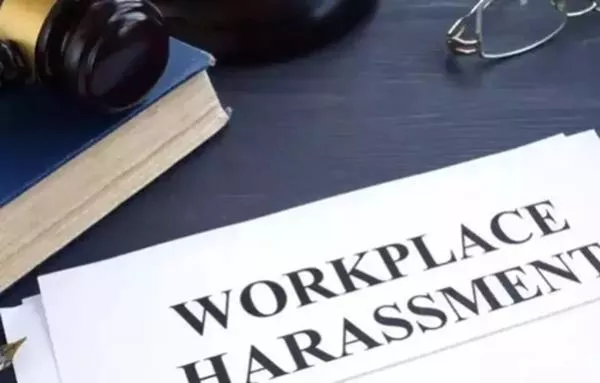
If you have faced sexual harassment at work and filed a complaint under the POSH (Prevention of Sexual Harassment) Act, 2013, you expect a fair investigation and resolution. But what if the Internal Complaints Committee (ICC) dismisses your complaint? Or what if you are unhappy with the decision?
The good news is you have legal options. The POSH Act allows you to take your case to court if:
This guide explains how and when you can take your POSH case to court, what legal options are available, and how the court process works.
Below are the points of when can you take a POSH Case to Court:
Example: If a woman complains about continuous harassment by a senior manager, but the ICC only gives him a verbal warning, she can appeal in court for stricter punishment.
Example: If a company fails to fire an employee found guilty of sexual harassment, the victim can file a legal case in labour court.
Example: If a woman loses her job after complaining about her boss, she can sue the company for wrongful termination.
Example: If an employee is sexually assaulted at work, she should file an FIR under IPC Section 354 and also report it under POSH.
These are the courts where you can approach if you want to file a complaint of POSH:
Situation | Legal Action | Where to File the Case? |
|---|---|---|
| ICC dismisses your complaint unfairly | Appeal against the ICC's decision | high court (within 90 days) |
| Employer ignores POSH complaints | File a non-compliance case | High Court |
| Wrongful termination or retaliation | File a wrongful dismissal case | Labour Court |
| Sexual assault, threats, or stalking | File a criminal complaint | Criminal Court (via FIR) |
| Employer fails to implement ICC's decision | File a legal notice | High Court |
Follow the below steps to file a POSH Case in Court:
Example: If an ICC dismisses a case unfairly, but the victim has chat messages proving harassment, she can present them as evidence in court.
Example: If a woman is unhappy with a minor punishment given to her harasser, she can demand a stronger penalty in labour court.
Example: If an ICC finds a senior executive guilty, but the company refuses to fire him, the victim can take the case to the High Court.
IPC Section | Crime | Punishment |
|---|---|---|
| IPC 354 | Outraging a woman's modesty (unwanted physical advances, groping) | 1 to 5 years imprisonment |
| IPC 354A | Sexual harassment (verbal remarks, inappropriate touch) | Up to 3 years imprisonment |
| IPC 354D | Stalking (online or in person) | Up to 3 years imprisonment |
| IPC 509 | Using words or gestures to insult a woman | Up to 1 year imprisonment |
If your POSH complaint is ignored or unfairly dismissed, you have the right to take legal action. The Indian legal system protects victims of workplace harassment, and courts can order strict penalties against offenders and negligent employers.
Workplace harassment is illegal-every woman deserves justice! Share this article to spread awareness.

The Internal Complaints Committee (ICC) is a body set up within an organization to address complaints related to sexual harassment at the workplace. It is a legal requirement for all organizations with more than 10 employees to have an ICC to provide a safe and supportive environment for employees.
The ICC plays a crucial role in preventing and addressing sexual harassment at the workplace. It ensures that any complaints regarding harassment are taken seriously, investigated thoroughly, and resolved fairly, ensuring a safe work environment for all employees, especially women.
The Internal Complaints Committee is typically composed of the following members:
The ICC is responsible for several important functions:
If the ICC fails to act appropriately on complaints, the employee can escalate the matter to the Local Committee or take legal action. The organization could also face penalties for failing to establish or maintain an effective ICC as per the law.
The presence of an ICC in the workplace helps:
The Internal Complaints Committee (ICC) is a vital part of ensuring that workplaces are free from harassment and discrimination. It helps create a safer and more respectful environment for employees, which is essential for fostering productivity and well-being. So, while you may not hear about the ICC in the same breath as the Cricket World Cup, it's definitely something that can make a huge difference in how we work together.


Filing a sexual harassment complaint under the POSH (Prevention of Sexual Harassment) Act, 2013, is supposed to ensure a fair investigation and justice for victims. However, what if your company ignores your complaint?
Many women fear that:
If this happens, don't stay silent! The POSH Act gives women legal rights and multiple ways to escalate their complaints.
In this article, we explain:
Some companies fail to act on complaints due to : -
Example: A female employee reports repeated sexual advances by her manager, but the company dismisses the complaint to protect him. This is illegal under POSH laws, companies must investigate and take action. If they don't, you can escalate the case.
These are the steps you must consider if your POSH complaint is ignored:
If you do not receive a response within 7 days, send a formal written reminder to the ICC.
Example: If an ICC does not respond within one week, you can send a legal notice warning of escalation.
If the ICC ignores your complaint or your company does not have an ICC, you can file your complaint with the Local Complaints Committee (LCC).
Example: If a small company (less than 10 employees) does not have an ICC, you can file your complaint directly with the LCC.
If the employer does not cooperate or ignores the ICC's recommendations, you can file a complaint with the Labour Commissioner's Office.
Example: If a company refuses to follow the ICC's recommendation to punish a guilty employee, the Labour Commissioner can fine them ₹50,000.
Example: If a victim is not satisfied with the ICC's decision, she can file a legal case in labour court for stricter punishment.
If the harassment involves physical assault, stalking, or criminal threats, file an FIR under BNS/Indian Penal Code (IPC) laws:
Outraging Modesty of a Woman:
IPC Section 354: Assault or criminal force on a woman with intent to outrage her modesty.
BNS Section 74: Assault or use of criminal force on a woman with intent to outrage her modesty.
Insulting Modesty of a Woman (Verbal Harassment, Obscene Gestures):
IPC Section 509: Words, gestures, or acts intended to insult the modesty of a woman.
BNS Section 78: Intentional insult or act (words, gestures, exhibition of objects) aimed at outraging a woman’s modesty.
Criminal Intimidation (Threats for Complaining):
IPC Section 503: Criminal intimidation (threats to harm a person’s body, reputation, or property).
BNS Section 351: Criminal intimidation (threatening another with injury to person, reputation, or property).
Example: If a woman is threatened with job loss for rejecting sexual advances, she can file an IPC complaint along with the POSH complaint.
If a company fails to act on a POSH complaint, it can face
Example: In 2019, a company in Bengaluru was fined for failing to handle a sexual harassment complaint properly, the victim received compensation for emotional distress.
Example: If an employee faces retaliation (salary cut, transfer, or firing) after complaining, she can file a separate case against the employer.
If your POSH complaint is ignored, do not stay silent. Companies are legally required to handle complaints fairly. If they fail, you have multiple legal options to get justice.
Every woman has the right to workplace safety. Share this article to spread awareness!
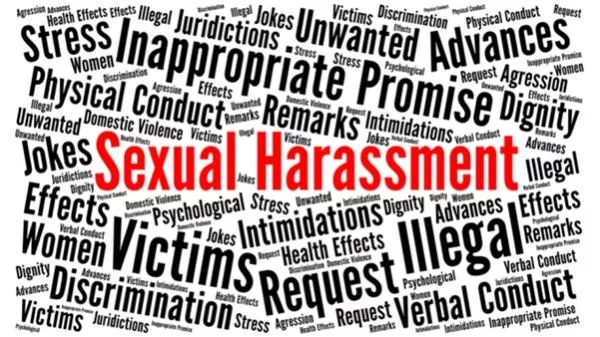
In a well established corporate firm, a female employee shares a cordial relationship with a senior female colleague. At first, their interactions seem normal casual workplace conversations, occasional lunches, and friendly messages. However, things gradually take an uncomfortable turn.
The senior colleague starts making personal comments, frequently touches her arm or back while talking, and insists on spending time outside work. Late-night messages become frequent, often unrelated to work. During a team outing, the colleague becomes possessive, saying, "You always hang out with others but never make time for me. I thought we had something special."
The employee begins to feel uneasy but hesitates to react, unsure if this qualifies as harassment since it's coming from another woman.
Here are some informative points that you should be aware of : -
Yes! The POSH Act, 2013 (Prevention of Sexual Harassment at Workplace Act) is meant to protect employees from any form of sexual harassment, regardless of the harasser's gender. While the law was primarily created for women facing harassment from male colleagues, many corporate policies and legal precedents have ensured that same-sex harassment is also recognised and addressed.
Harassment is not about gender; it is about discomfort and consent. Some common forms of same-sex workplace harassment include:
Even if no explicit sexual advances are made, harassment is about how it makes the victim feel if it is unwelcome, it is harassment.
Below are the points that you should follow if you are facing sexual harassment from a colleague :
Many people hesitate to report same-sex harassment due to:
However, if the behaviour makes you uncomfortable and is unwelcome, it qualifies as harassment. Trust your instincts.
If comfortable, address the behaviour directly. A simple but firm response can help stop the harassment.
If the behaviour continues despite setting boundaries, further action is necessary.
Keeping a detailed record strengthens the case if a formal complaint is needed.
Under POSH Act guidelines, every company with 10 or more employees must have an Internal Complaints Committee (ICC) to handle workplace harassment cases.
The ICC is legally required to investigate the matter fairly and take appropriate action, which may include:
If the ICC fails to act or the harassment continues, escalate the case to:
Harassment, especially from a trusted colleague, can be mentally exhausting. Seek support from HR, a mentor, friends, or a professional counsellor.
Workplace harassment is not defined by gender; it is defined by discomfort and lack of consent. If someone's behaviour is making you uncomfortable, it is okay to set boundaries and seek help.
If it feels wrong, take action. You deserve a workplace that is safe, respectful, and professional.
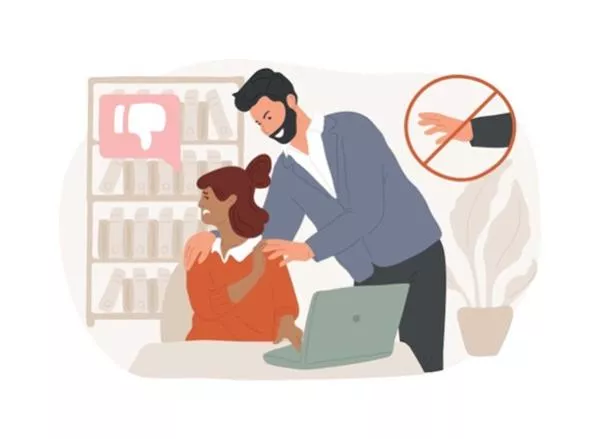
A professional working at a prestigious corporate firm enjoys a productive work environment and is dedicated to career growth. However, over time, interactions with a senior colleague begin to take an uncomfortable turn.
At first, the comments seem like casual compliments on appearance or light-hearted jokes, but soon, they start feeling personal and inappropriate. The senior colleague begins making remarks about dressing style, repeatedly finds reasons to initiate physical contact (such as placing a hand on the shoulder or guiding by the lower back), and sends late-night messages under the pretext of discussing work.
One day, after an official corporate event, the senior colleague offers a ride home. Upon politely declining, the response is a dismissive laugh followed by, "Come on, don't be so formal. After all, I've been helping you out a lot at work." The situation feels uncomfortable, yet fear of being seen as overly sensitive or unprofessional makes it difficult to react immediately.
This is a clear example of sexual harassment in the workplace, and it falls under the POSH Act (Prevention of Sexual Harassment at Workplace Act, 2013). Recognising the situation and knowing the next steps are crucial for ensuring safety and professional integrity.
The POSH Act, 2013, defines sexual harassment as any unwelcome behaviour of a sexual nature at the workplace, including:
Even if the behaviour seems indirect or disguised as humour, it can still constitute harassment if it creates an uncomfortable, hostile, or intimidating work environment.
If faced with such a situation, here are the steps to take under the POSH Act:
One of the biggest reasons sexual harassment goes unreported is self-doubt—wondering whether the behaviour was intentional, whether it was "just a joke," or fearing being labelled as overly sensitive.
It is important to remember that harassment is about how the behaviour makes you feel. If it is unwelcome, uncomfortable, or inappropriate, it is harassment.
Maintaining a detailed record of the incidents is crucial, especially if they happen repeatedly.
A well-documented case strengthens credibility and helps during the formal complaint process.
Sometimes, directly addressing the issue can stop it. If comfortable, clearly communicate that the behaviour is unacceptable.
A firm but professional response might be:
If the behaviour stops, this may be the only step needed. However, if the harassment continues, further action should be taken.
Under the POSH Act, every organisation with 10 or more employees must have an Internal Complaints Committee (ICC) that handles workplace harassment complaints.
The ICC must investigate the complaint confidentially and recommend appropriate actions, including warnings, transfers, suspension, or termination of the offender, based on the severity of the offence.
If hesitant about filing a formal complaint, speaking to a trusted senior colleague, HR representative, or mentor can provide guidance on how to proceed. Organisations often have employee assistance programs (EAPs) or counselling services that offer support in handling workplace harassment situations.
If the ICC fails to take appropriate action or the organisation does not have an ICC, the case can be taken to the Local Complaints Committee (LCC) under the jurisdiction of the district administration.
Legal action can also be pursued under:
Under the POSH Act, retaliation against the complainant (such as demotions, negative feedback, or threats) is illegal.
Experiencing harassment can be emotionally draining. Seeking professional counselling, talking to trusted friends or family members, and practicing self-care can help in processing the experience.
Remember, reporting harassment is not just about personal justice it also helps create a safer workplace for others who may be going through similar experiences.
Sexual harassment is not just about extreme cases of misconduct- it includes any behaviour that makes an employee feel unsafe or uncomfortable at work. The POSH Act is designed to ensure a work culture where every employee, regardless of gender or position, feels respected, valued, and secure.
If you or someone you know is facing such a situation, take action, seek support, and remember that your workplace must be a space where you feel safe and empowered.

Many people confuse workplace harassment and discrimination, but they are not the same. Both can create an unsafe work environment, but they have different causes, legal protections, and ways to take action. Understanding the difference between harassment and discrimination will help employees know their rights and take the right steps if they face unfair treatment at work.
In this article, you will learn:
Workplace harassment happens when someone is mistreated in a way that creates an unsafe or uncomfortable work environment. It can be verbal, physical, or emotional abuse that affects the person's ability to work.
Example: If a female employee is constantly touched inappropriately by her supervisor and feels unsafe, this is sexual harassment, not discrimination.
Workplace discrimination happens when an employee is treated unfairly based on personal factors like gender, religion, caste, disability, or age.
Example: If a company refuses to hire a woman because they believe she will take maternity leave, this is gender discrimination, not harassment.
Feature | Harassment | Discrimination |
|---|---|---|
| Definition | Unwanted behaviour that creates a hostile work environment | Unfair treatment based on gender, caste, religion, disability, etc. |
| Examples | harassment, bullying, intimidation, sexual harassment, verbal abuse | Unequal pay, hiring bias, denial of promotions |
| Impact | Creates stress, fear, and mental trauma | Limits career growth and job opportunities |
| Legal Protection | POSH Act, IPC laws, Industrial Disputes Act | Equal Remuneration Act, Disability Act, SC/ST Act, Constitution |
| Who Can File a Complaint? | Any employee facing harassment | Any employee facing unfair treatment due to identity |
| How to Take Action? | Report to HR, ICC, or police | File a complaint with the labour department or court |
If you face Harassment or Discrimination, you can report it through : -
Both harassment and discrimination create toxic workplaces, but they are different problems with different legal solutions.
If you face workplace harassment or discrimination, take action! Report it, seek legal help, and demand fair treatment. A workplace should be safe, fair, and respectful for everyone.

Filing a sexual harassment complaint at work can feel overwhelming, but under the Prevention of Sexual Harassment (POSH) Act, 2013, there are several types of support available to help employees who face harassment. The law ensures that complainants receive respect, confidentiality, and protection throughout the process. Let's break down the support you can expect:
When dealing with sexual harassment, it's important to receive emotional and psychological support. The POSH Act makes sure organisations offer this support to the complainant.
Counselling Services
Mediation and Conflict Resolution
The POSH Act also provides legal support, ensuring your rights are respected throughout the complaint process.
Guidance from the Internal Complaints Committee (ICC)
Option to Seek External Legal Help
The POSH Act ensures that complainants are protected and can work in a safe environment during and after the investigation.
Temporary Relief or Suspension of the Accused
Transfer to a Different Department or Team
Workplace Flexibility
Confidentiality and protection from retaliation are key components of the POSH Act.
Confidentiality in the Process
Protection from Retaliation
The POSH Act ensures that the person who harassed you is held accountable for their actions.
Possible Disciplinary Measures
Why it's important: These actions help ensure a zero-tolerance policy for harassment and protect you from further harm.
If the company doesn't handle the complaint properly, you can approach external authorities.
District Officer
National Commission for Women (NCW)(ncw)
The POSH Act provides a robust system of support for those facing sexual harassment at work. From emotional support, workplace adjustments, and legal protection to confidentiality and protection from retaliation, the law ensures that complainants are treated fairly and respectfully. If you are experiencing harassment, remember that you have the right to a safe work environment, and the POSH Act ensures that there are clear processes in place to protect your rights. The support offered by the POSH Act helps empower employees, ensuring that cases of harassment are dealt with seriously and justly.
Comments